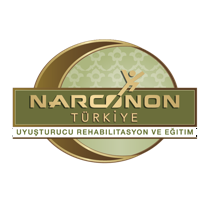How to Help a Friend or Family Member Addicted to Drugs
Everyone around an addict knows he or she needs help, but often the addict can’t see it. Many die exactly that way. Our goal is to try to provide the family with as much information as possible relating to the intervention process.
If you are ready to get your loved one into recovery now, contact Narconon.
Very often, an addicted person will know deep inside that he or she needs help but be unable to break the cycle long enough to receive the needed help. An example that is very common is when an addict encounters some major problem (e.g. they get arrested, kicked out of house, lose job etc.) and at that point is completely willing to discuss the addiction with loved ones. Unfortunately, if this opportunity is not quickly seized, the drug cravings and overwhelming environment will force the individual back into using drugs and it will be some length of time before he/she will encounter forces that again yield cooperation towards rehabilitation efforts.
How to detect and recognise drug usage?
What is the Ruin of the Addict?
The addict has things in his or her past or present that seem like devastating events and that have something to do with drugs. One example is a person that has lost his best friends due to his addiction. Another example is a person losing his wife and child over drug abuse. A family member can look at an addict’s life and see hundreds of reasons why he/she should quit using but unfortunately these reasons are not REAL to the addict. There are, however, problems the addict encounters that are real or significant in the addict’s life, which he/she sees as reasons to quit using drugs. These are important to identify because they can be used during the intervention to remind the addict why he or she must seek help.
What Pressure Does the Addict Feel Now?
The addict doesn’t necessarily have the same reality about their addiction that non-addicts might. For instance, he or she may have semi-serious health problems, no friends and no job or income but feel like they are ‘doing okay’. Many addicts have actually overdosed on drugs coming very close to death and are right back using drugs the very next day. This may appear crazy but in fact is only part of the pain for the addict.

With this in mind, the addict from time to time will encounter added pressure, which forces him/her to make an actual decision about whether to seek help or continue to use. Pending legal charges that could easily lead to gaol time, threat of losing spouse, pending loss of job, all are possible situations where a person has enough pressure to fight the addiction and seek help. Although any one in particular may not work in your situation, there are pressures that can come to bear which will help prod the addict into a decision to seek help. It is easy to assume the addict is “only seeking help to avoid gaol” or some other evaluation which in many cases is true. The fact remains that an addict will only seek help when someone or something pushes him out of his “addiction comfort zone” and forces him into a decision. Addicts with access to money, a place to live and people who agree with their usage rarely seek help. They “don’t have a problem”. This is very important to understand and will be crucial in any attempt at intervention.
Who Should be There to Help?
One of the major considerations involving intervention is selecting who will be there. This matter should be well thought out beforehand. The number of people there is less important than who is there. If at all possible, the person in the family whom the addict respects the most should be there. This person is an opinion leader to the addict and needs to be there fully supportive of getting the person help and informed well about the actual agenda.
As many family members as possible should be there as long as each and every one are completely in agreement about the fact that the person needs help and supportive of the general agenda. If someone in the family is antagonistic against the addict and is not capable of restraining themselves from arguments and blame then you might consider leaving that person out. Usually, the addict has many enemies and has done wrong to most of the family but arguments and upset will not benefit the cause of getting the addict to seek treatment. In fact it will usually result in stopping this from happening because the focus of attention gets placed on the argument and not on the matter at hand.
The overall goal is to bring the addict up to a point where he or she realises there is a problem and is willing to seek help. When this has been achieved, be prepared to get them to treatment without any delay.
Prescription drug abuse guide download
Marijuana facts guide download
Tools to help a loved one
How to fight back heroin abuse booklet
How to Fight Back HEROIN ABUSE
Get the tools to help someone you love.

